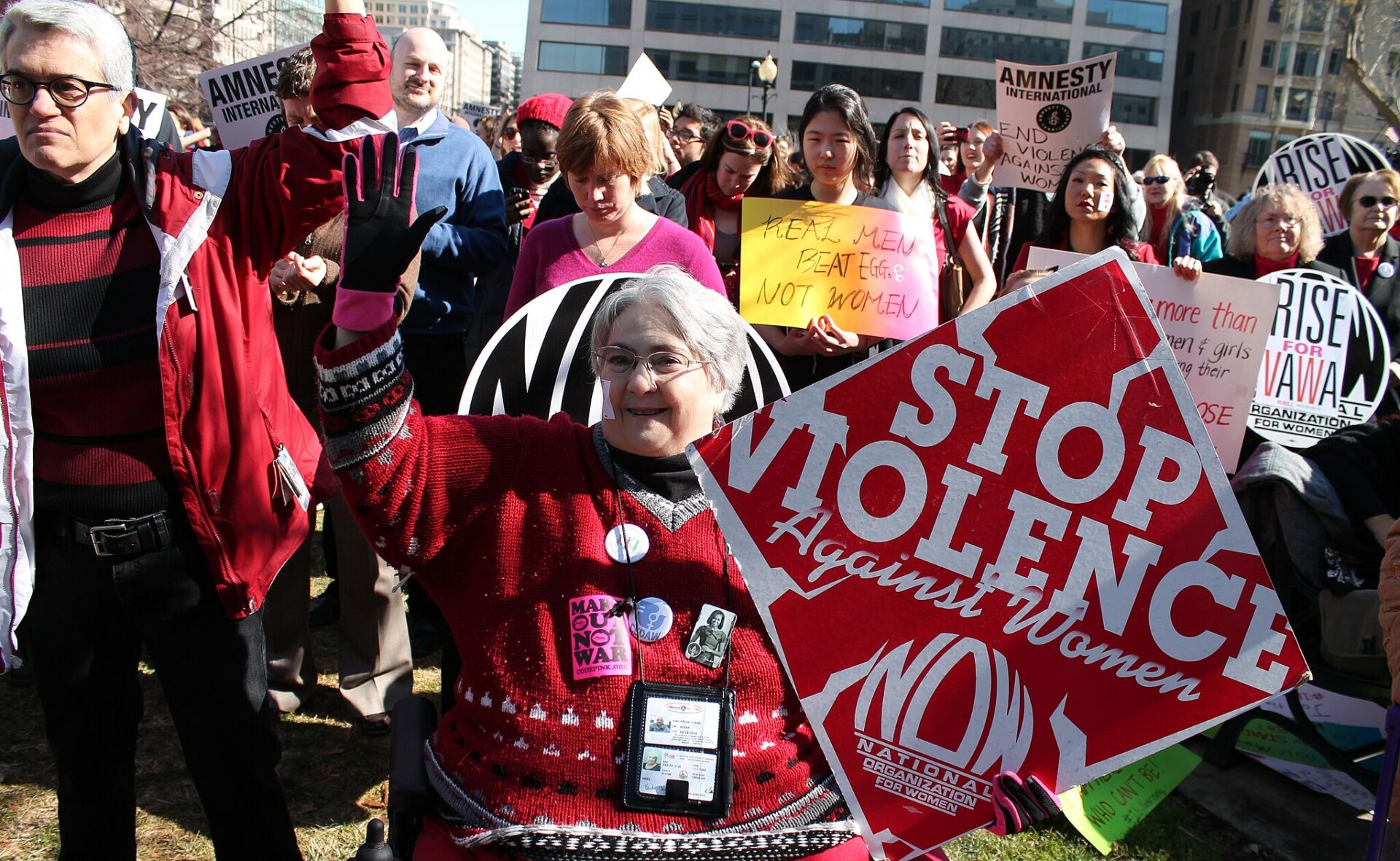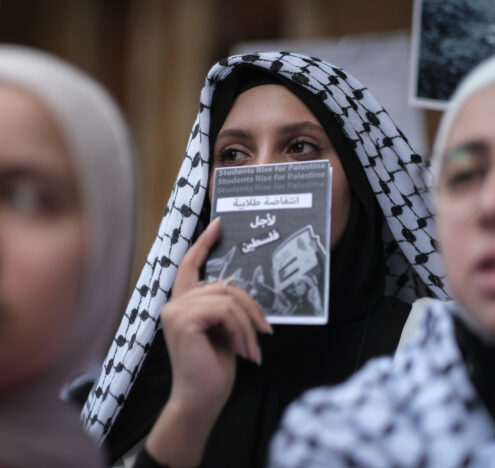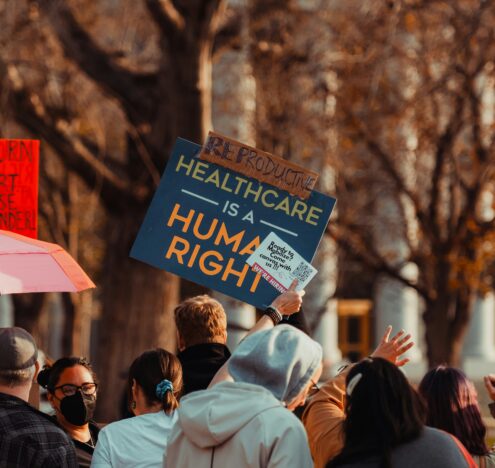Throughout the past decade, there has been a rise in deadly violence perpetrated by incels — self-identified “involuntary celibates” who blame their inability to form sexual or romantic relationships on women and society. These crimes are often explicitly sexist. In 2014, for instance, Elliot Rodger went on a shooting and stabbing spree in Isla Vista, California, that killed six people, in part targeting a sorority. Four years later, Scott Paul Beierle attacked a yoga studio in Tallahassee, Florida. He shot six women, two fatally, and pistol whipped a man before he took his own life.
In both cases, the attackers left behind statements in which they explicitly stated their hatred of women and glorified misogyny. Rodger had sent out a 141-page manifesto in which he vowed to “wage a war against all women,” while Beierle had posted a series of YouTube videos in which he declared himself a misogynist.
Often, the perpetrators of misogynist violence are revered as movement leaders — or in the case of those who killed themselves afterward, martyrs — within the incel community. It is not dissimilar to Islamic State in Iraq and Syria (ISIS) sympathizers who revere Omar Mateen, who carried out a mass shooting at an LGBTQ club in Orlando in 2016, or those who praised the ISIS gunmen who infamously shot up the Bataclan in Paris in 2015.
Still, there is a key difference: These acts of violence are rarely viewed — or, more importantly, treated — as acts of terrorism.
“Tricky Case”
“The United States is a tricky case, because in the vast majority of instances, terrorism which is not foreign-origin, or foreign in some way is not viewed as terrorism,” said Tim Squirrell, head of communications at the Institute for Strategic Dialogue (ISD).
Squirrell explained that it is only recently — and after long deliberation — that even an incident such as the deadly 2022 mass shooting in Buffalo, New York, where a white gunman tried to take “as many Black lives as possible,” is even being categorized as domestic terrorism.
“What we decide to name as terrorist versus what we decide to name as ‘something else,’ has an impact on how different sets of people are perceived,” Squirrell continued. He pointed out that this functions to reinforce a double-standard: People who are othered because of race, religion, or national origin are likelier to be seen and treated as terrorists than those who are not. “If an ISIS supporter shoots up a club and you’re willing to call that a terrorist incident, but you’re not willing to do that for someone who is not in the service of a foreign terrorist organization, that’s concerning.”
Gender-Based Violence as Ideology?
While homegrown ideologies such as white supremacy and antisemitism have been taken more seriously in recent years, misogyny — despite its frequent overlap with both far-right and neo-Nazi ideologies — hasn’t garnered the same level of attention.
“There is a tendency to view gender-based violence as a personal issue, rather than an ideological issue,” said Alex DiBranco, the founder and executive director of the Institute for Research on Male Supremacism.
Although misogyny is being increasingly understood as a gateway to other harmful ideologies such as white supremacy and far-right nationalism, it is rarely treated as a motivating factor in and of itself. Still, nearly three women are killed by an intimate partner in the US every day, while more than two-thirds of mass shootings are carried out by perpetrators with a history of domestic violence.
What we decide to name as terrorist versus what we decide to name as ‘something else,’ has an impact on how different sets of people are perceived.
– Tim Squirrell
Inspired by attackers like Elliott Rodger, perpetrators of incel violence often target women they call “Stacys” — coded language for blonde, desirable and in the eyes of most incels, sexually unattainable.
While most incels never commit, or even plan to commit an act of violence on this level, Elliot Rodger is nevertheless a revered name in the incel community. In fact, there are numerous online posts that sympathize with his deadly violence against the “Stacies” of the world, that function to spread the belief that women “owe” men sex at best and justify acts of violence in the name of that belief, at worst.
“Symbolic Terrorism”
Treating misogyny as a personal issue “fails to recognize acts of violence that target sororities or yoga studios as acts of symbolic terrorism,” DiBranco continued, adding that while other forms of supremacy — such as racism, homophobia, or transphobia — are seen as harmful ideologies that motivate acts of violence, sexism is rarely framed this way.
While a violent incident directed at someone because of their race, religion, sexual orientation, or gender expression can be categorized as a hate crime, a crime directed at a cisgender woman based on her identity as a woman is simply a crime.
One example of this came after the Atlanta spa shootings in May 2021. Citing his “sexual addiction” and a “desire to eliminate temptation,” a 21-year-old man opened fire on two spas, killing eight women. Prosecutors spent months deliberating over whether or not the attack was a hate crime that specifically targeted Asian women.
But if crimes against cisgender women are not categorized as hate crimes, how does this impact our perception of statistics surrounding them? “If we were coding all of the attacks that are disproportionately perpetrated against women as hate crimes under the current statutes that we have, the statistics would look incredibly different,” DiBranco said.
The Terrorism Double-Bind
If a crime is categorized as terrorism, rather than a hate crime — or, in the case of most instances of violence against women, simply a crime — it serves two different practical functions. First, it sends a different message to the public and to survivors about the gravity of these attacks, and how seriously law enforcement takes them.
Second, it allows police forces to mobilize counterterrorism resources to crack down on incidents, and even prevent acts of violence. However, Squirrell warns that this could result in the kind of increased surveillance that was seen after the Sept. 11 attacks — and that this breeds distrust with law enforcement, increases the threat of polarization and doesn’t actually do much to stop terrorism.
“On the one hand, we want incel-related and misogynist violence to be taken more seriously and treated with the kind of gravity that it deserves,” he said. He added that this should also take into account the influence of someone like Andrew Tate and pick-up artist culture on the internet, which contributes to organized misogyny and perpetuates a culture of violence against women. “But we also don’t want this to mean that they are just as securitized and surveilled as other populations.”
Intervening in Misogynist Violence
One of the most alarming reasons that some argue against categorizing male-perpetrated violence against women as terrorism is that these crimes are so common, that there is a fear that all police resources would be concentrated in fighting this form of “terrorism.”
“Right now, it [extreme misogyny] falls between the cracks,” Squirrell continued. Nonetheless, a counterterrorism approach could swing this too far in the opposite direction: Call everything terrorism, and the designation runs the risk of losing all meaning. “We also don’t necessarily want the awesome power of the state to be deployed against a whole load of 15-year-olds in their bedrooms saying nasty things on the internet, either.”
But DiBranco argues that the breadth of violence against women is exactly why there should be a holistic approach to combating misogyny that goes beyond incel attacks and addresses the roots of male supremacy.
“Many of the same beliefs about sexual entitlement and gender roles that you see in incel communities are also present among perpetrators of domestic violence,” she said.
The way she sees it, these beliefs are also cornerstones of anti-trans ideology as well as crackdowns on reproductive rights and freedoms. While a counter-terrorism approach is useful with regard to policing and accountability, it does little to sway this core belief — let alone ensure that women and other gender nonconforming people will not be subject to this kind of violence.
“Our intervention points are focused on long-term cultural change,” she said. She explained that this could range from instituting comprehensive, consent-based sexuality education to working with schools to ensure that countering supremacy was part of the curriculum. “We need to bring the counterterrorism field into conversation with gender justice, reproductive justice, racial justice and social justice fields.”





















